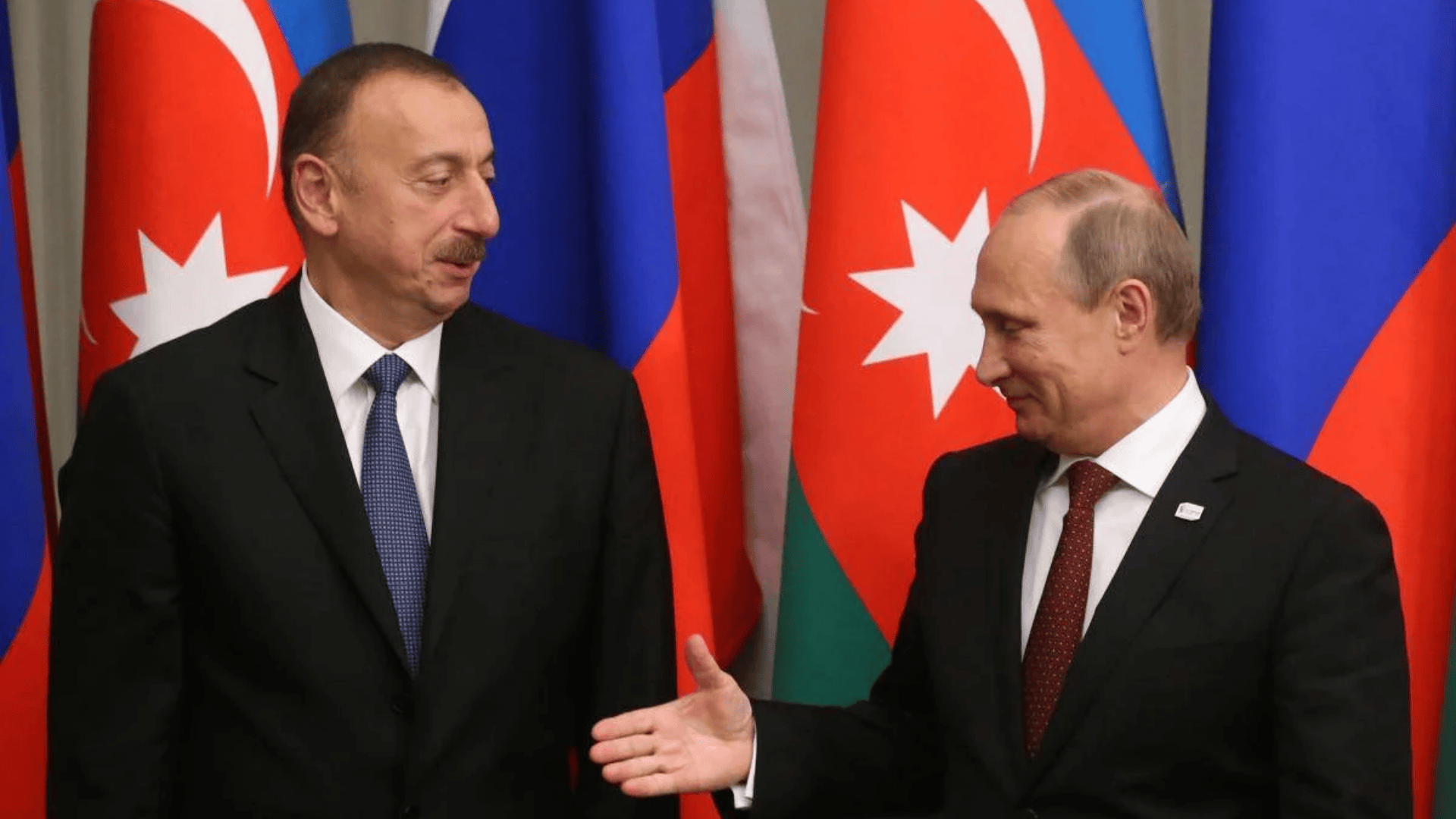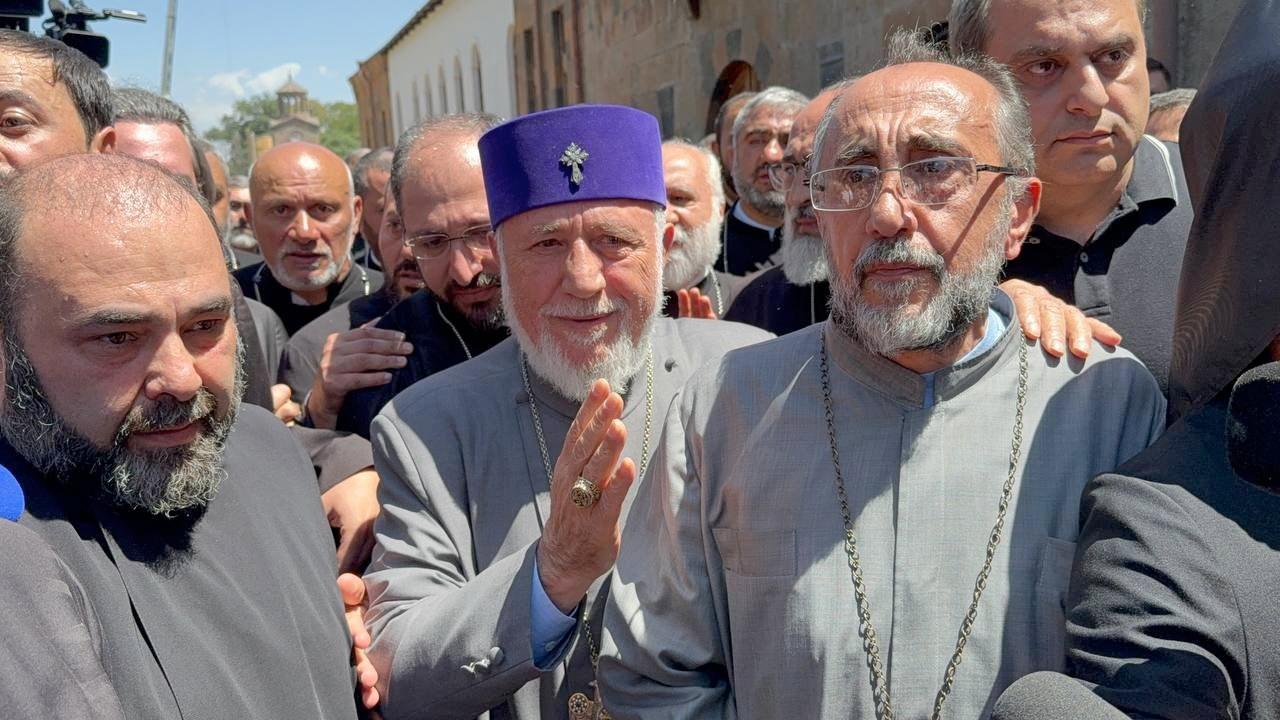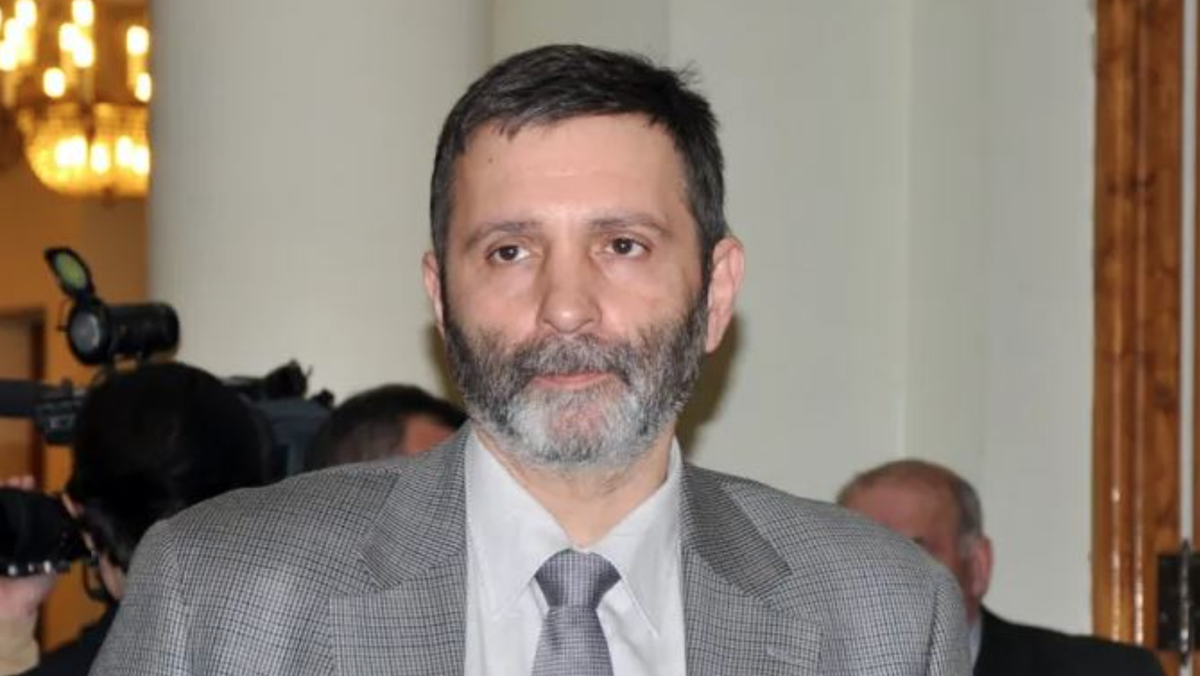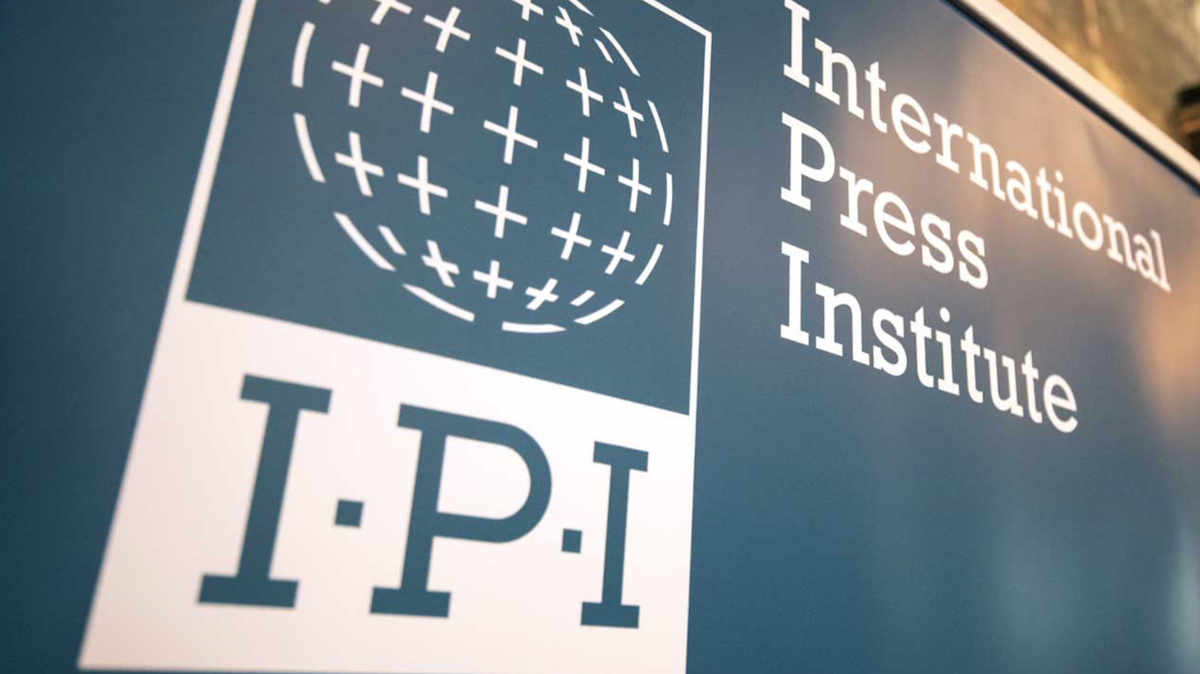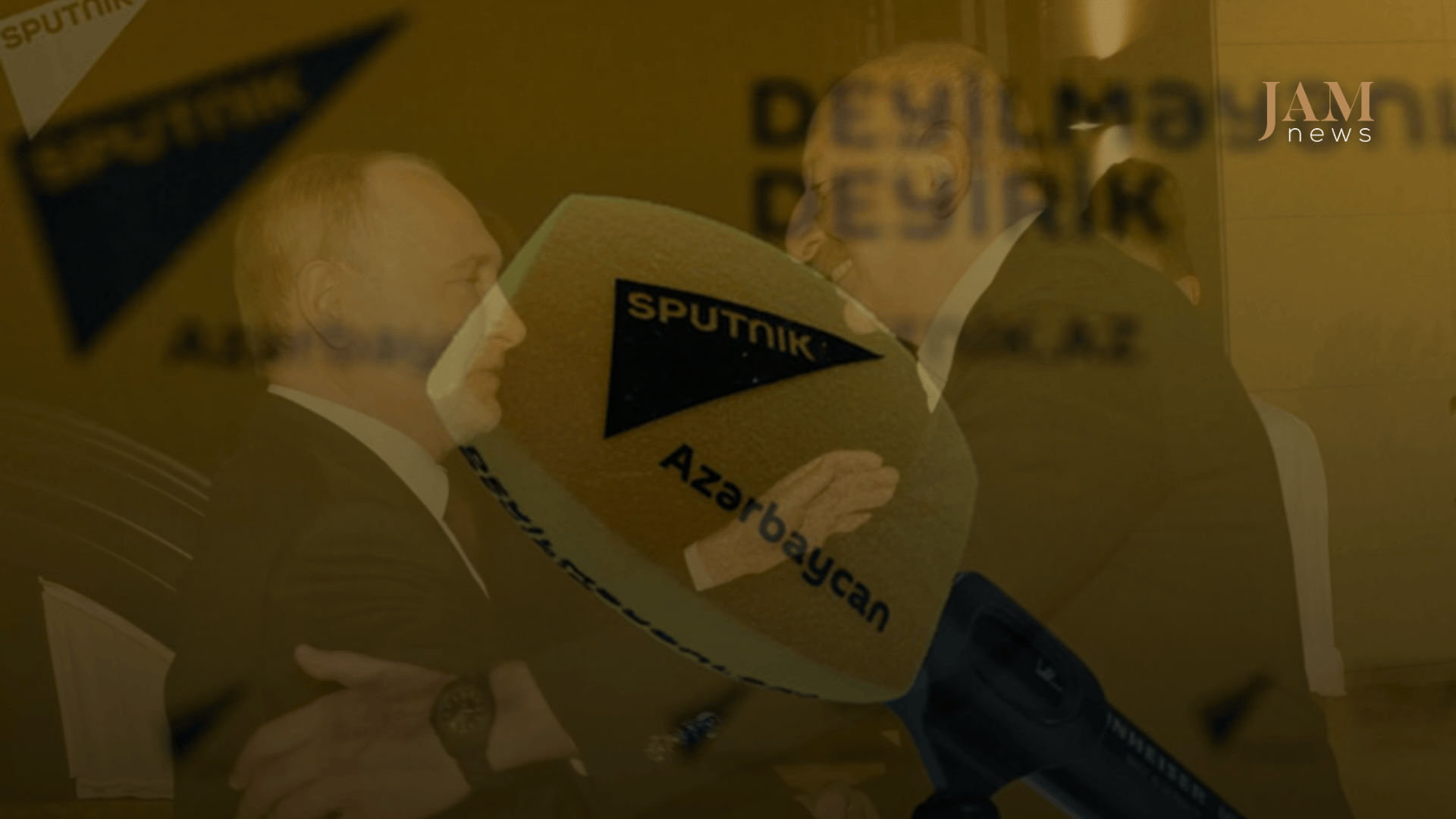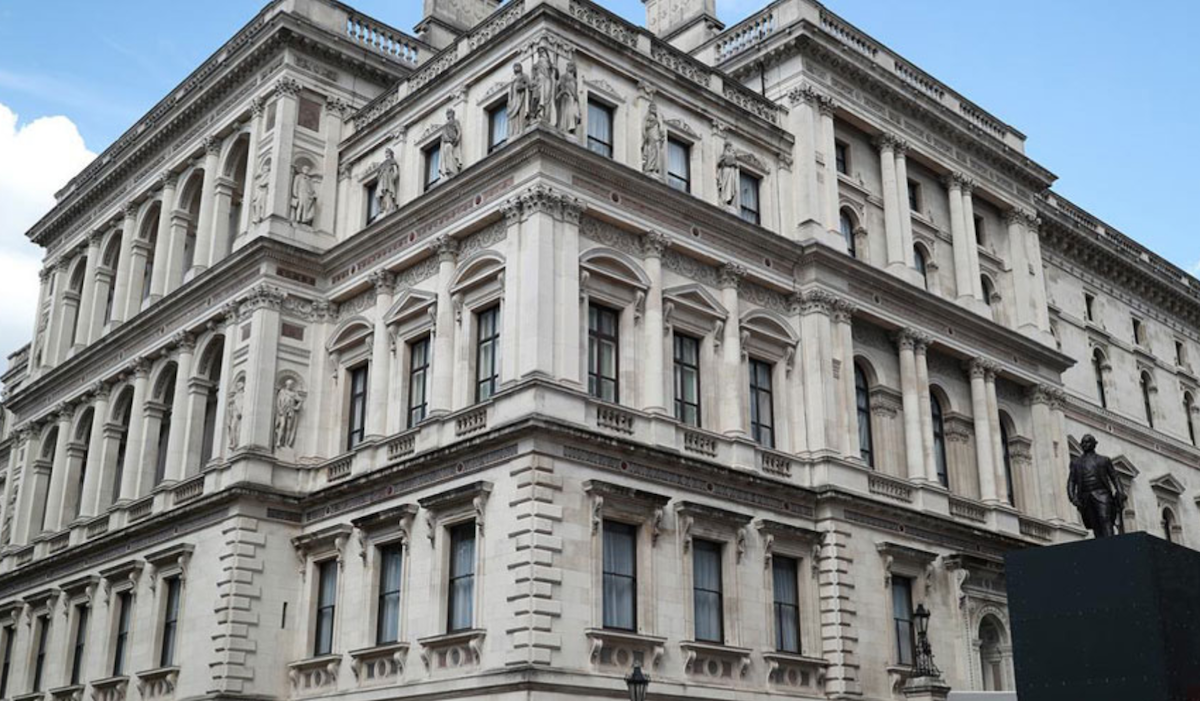How Georgian oligarch Bidzina Ivanishvili sees the world. Opinion
Bidzina Ivanishvili and the Global Party of War
A global syndicate of villains plans to drag the world into war. No one knows about the existence of this organization and its intentions, except for one person who lives in a futuristic mansion on a mountainside in a tiny, beautiful country.
This man, along with his allies, has decided to thwart the nefarious plan and save the world from a great trial.
Inspired by such a plot, Orson Welles could have made an excellent thriller—a very intricate film noir, with many chase scenes, ironic dialogues, and ominous music.
But this is not a film story. The action takes place in our time and in real life.
Georgia is the small country, and Bidzina Ivanishvili, the informal ruler of this country, is the initiator of a global military syndicate.
So far, the story of a global military conspiracy has been mainly for domestic consumption, with representatives of the ruling Georgian Dream party using this term to stoke fear of war among the population.
After Georgian Dream reintroduced the “foreign agents” law, despite opposition from the people and Western partners, Ivanishvili and his team are now telling the whole world stories about a Global Party of War. And in response, the world is asking in shock—what?!
- Generation Z protest: Who’s leading the frontline against the ‘Russian law’ in Georgia. Video
- Ivanishvili voiced what awaits Georgia after the elections at the rally (spoiler: nothing good)
- “Georgia becomes Putin’s personal cash box” – Experts on offshore law and the ongoing protests
This confusion was particularly noticeable in the assistant to the US Secretary of State, James O’Brien, after meeting with the top officials of Georgia. The high-ranking American official, who arrived in Tbilisi on May 14 to address the unprecedentedly strained Georgian-American relations, was generously treated to stories about the “Global War Party”.
Prime minister Irakli Kobakhidze did not hide that he extensively discussed the topic of a global conspiracy with the American guest and even shared more information than had been publicly announced on this topic before.
“If I’m revealing about 20 percent of the information to you, then to Mr. O’Brien I’ve revealed about 30 percent,” Kobakhidze told journalists after the meeting.
Thus, the conversation, the main topic of which should have been the notorious “foreign agents” law, took an unexpected direction for the American diplomat.
Before leaving Georgia, at a press conference for journalists, O’Brien openly stated that he had heard from the Georgian leadership about remarkable conspiracy theories.
According to the statement of the high-ranking American official, Georgia’s problem is not limited to just the “foreign agents” law:
“This law is just a small part of a broader theme, and this theme concerns the statements of the ‘Georgian Dream’,” O’Brien said.
As he noted, in Tbilisi he was told that there is a “Global War Party” and that the West wants to overthrow the “Georgian Dream” government.
“Listening to the authorities of Georgia, I get the impression that I’m hearing someone’s made-up conspiracy theories from the social network Reddit,” O’Brien said.
According to him, “all this is incredible, mistaken, and indicative of a completely inadequate perception of the international community towards Georgia.”
Ivanishvili’s statements that he “is already a victim of international sanctions,” O’Brien called “an intrusive idea.” It also became known that through Kobakhidze, Ivanishvili conveyed to the American guest that he would not meet with him until the West stops financial restrictions imposed against him.
Based on all of this, it appears that the oligarch is actually demanding the return of his two billion dollars. Ivanishvili constantly repeats that this amount has become a victim of international sanctions.
The same is said by his loyal politicians. The country’s top officials are talking about fictional sanctions and without hesitation discussing Ivanishvili’s billions.
What are these two billion about? In fact, this amount is nothing but an unsuccessful investment entrusted to a Swiss bank, which has now gone bankrupt. The oligarch lost this money much like ordinary citizens of Georgia lost their savings in private banks that emerged in the 1990s like mushrooms after the rain.
Other depositors and shareholders of the investment bank “Credit Suisse” also suffered billion-dollar losses, but no one else talked about sanctions and the “global war party” except Ivanishvili.
“At the moment, there are no sanctions against Ivanishvili. It is shocking and upsetting that such an influential person has such a mistaken view,” O’Brien said.
It is evident that the notion of a global conspiracy is deeply rooted within the ranks of the “Georgian Dream,” as evidenced by an interview with Member of Parliament Mariam Lashki, who spoke to a British journalist.
When asked by the journalist about what the “global war party” is, Lashki smilingly explained that the organization’s members, who desire war, are akin to Masons, and as is known, Masons have a significant influence on world politics.
“Do you believe in Masons?” Mariam Lashki, who is none other than the Deputy Chair of the Parliamentary Committee on Foreign Relations, asked the journalist.
The most surprised was the European Commissioner Oliver Varhelyi. Varhelyi, responsible for EU neighborhood policy, called the prime minister of Georgia and discussed with him the threat of escalation in the country. As an example, the European Commissioner cited Slovakia, where acute political confrontation led to an attack on the prime minister.
In his call for de-escalation, Kobakhidze saw a veiled threat from the “global war party” and declared, “The European Commissioner calls me and threatens me with murder.” The entire “Georgian Dream” fraternity immediately started shouting, “Look, we’re being persecuted.”
- The US Senate is preparing lists of individuals “undermining Georgia’s Euro-Atlantic integration” for stringent sanctions
- “The ‘Russification’ of Georgia will complicate Armenia’s departure from Russia.” Opinions from Yerevan
- “Azerbaijan, Armenia, and Georgia need a common vision to avoid being used against each other.” A perspective from Baku
It is difficult for American and European partners to diagnose the “Georgian Dream” with a single cause, and they are considering various theories about the situation. An analysis of Ivanishvili and his government’s fears should start from the very beginning.
In this regard, it is essential to read journalist Luka Pertaia’s article, which delves into the long history of conspiracy theories imposed by the “Georgian Dream.” Pertaia’s article examines the formation of a now-national conspiracy theory in the context of Ivanishvili’s financial machinations and personal views.
Full-scale discussions about the “Global Party of War” began simultaneously with Russia’s full-scale invasion of Ukraine.
The ruling elite switched from the topic of the “bloody nine years” to labeling opposition politicians, their own elected president, and civil society representatives as part of the War Party—essentially, anyone who criticized the government’s actions or pointed out their detachment from the events in Ukraine.
On the local level, a circle of global adversaries of the party quickly formed, but to this day, the leadership of this syndicate remains shrouded in secrecy.
We do not know where this secret charter is held, what the communication between its members looks like, how they plan to engulf the world in flames, or what power these people must amass to start a war.
After meeting with O’Brien, Kobakhidze stated that this issue should be discussed carefully and calmly because we are dealing with dangerous individuals. To fill the information vacuum, one could imagine these people wandering the world in pointed hats, masks, and black cloaks, plotting against everyone.
At least, this is the picture painted by Maria Lashkhi.
Simultaneously with identifying representatives of the “Global Party of War,” the attitude towards accredited ambassadors in Georgia took a harsh turn. “Georgian Dream” created a separate parliamentary group, “Power of the People,” and confronted the diplomatic corps.
Party members literally mocked EU diplomats. The then-American ambassador, Kelly Degnan, was accused of sowing unrest in the country.
The situation gradually worsened, and “Dream” attacked the West directly. This was when the “foreign agents” law first appeared, which, according to “Georgian Dream,” was supposed to expose the agent activities conducted by the “Global Party of War” in Georgia.
The withdrawal of the law and a shift in the diplomatic landscape eased the situation. “Dream” celebrated Georgia’s candidacy for EU membership with great pomp.
- “Ivanishvili’s decision to return has personal motives, fears and risks” – Georgian political scientist
- Centuries old trees – the billionaire’s latest temptation
- The oligarch’s hometown – the founding legend of the Georgian Dream
- What the flamingos in Ivanishvili’s dendrological park say about Georgia
After a brief recession, the law, the fear of a coup, and the theory of war parties returned, but in a more acute form.
The paranoia is in full swing, and high-ranking politicians are already talking about a global military conspiracy at all levels and in all formats.
When meeting with foreign guests, they reach for the specter of war standing behind their interlocutors, visible only to them.
In informal conversations, some European diplomats suggest that Ivanishvili is actually driven by an irrational fear of sanctions and revolutions. Ivanishvili’s personal eccentricity adds credibility to their opinion.
What do you expect from a man who lives in a glass tower suitable for James Bond, has exotic animals, and collects century-old trees from all over the country (and now the continents)?
Moreover, this man has completely cleaned out his circle and left no one around him who would challenge his strange convictions. Obedient politicians merely play dice with the oligarch, support his views, and themselves fall under the influence of these views.
In the 1970s, American psychologists first observed the “illusion of truth” effect—the tendency of people to believe information that is repeated frequently, considering it to be true.
One might think that the Georgian government has finally believed in the phantoms they invented.
Meanwhile, these illusory fears have taken material form in the real world—Ivanishvili and members of the government are already facing the threat of international sanctions.
There is another perspective on the situation. Some believe that the story of the “global party of war” is not the product of one oligarch’s wild imagination.
According to this view, Ivanishvili and his company are not deceiving themselves but are actually engaged in a well-thought-out policy.
On orders from the Kremlin, they intend to torpedo Georgia’s integration process into the European Union and distance the country from the West.
“At first glance, people might think Kobakhidze needs medical help. However, what Kobakhidze is doing is highly structured, purposeful, and well-thought-out disinformation, written in the Kremlin,” said Ana Natsvlishvili, a deputy from the Lelo party.
These two options present a million-dollar problem, or rather, a two-billion-dollar one. In both cases, the result is equally bad for Georgia.
The country faces international isolation, and if the Georgian and international communities do not act actively, it may end up on the other side of a new Iron Curtain.












